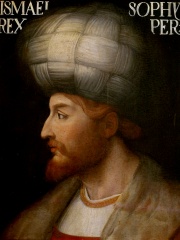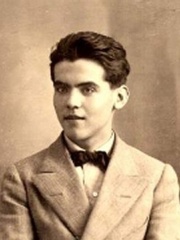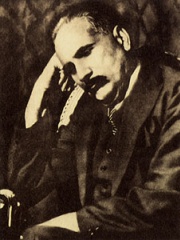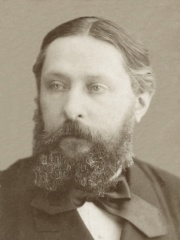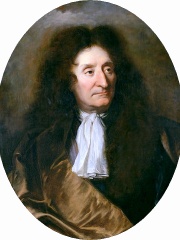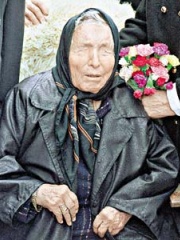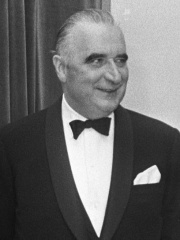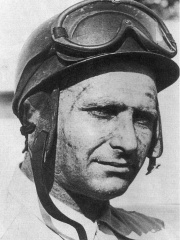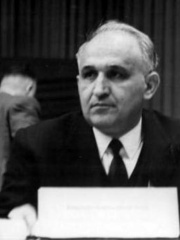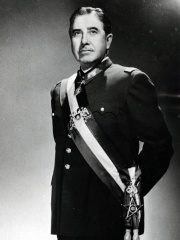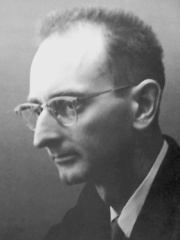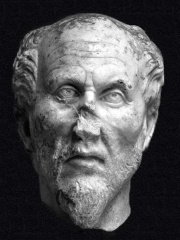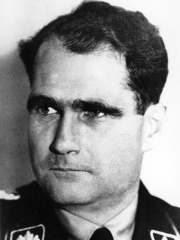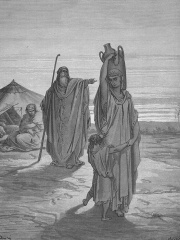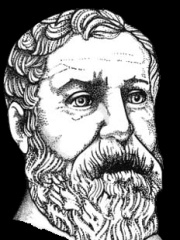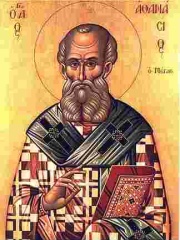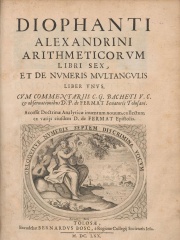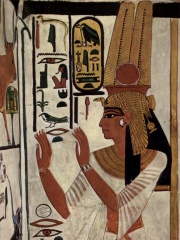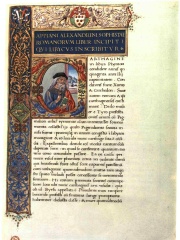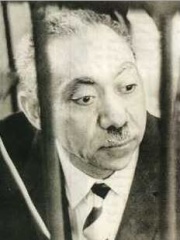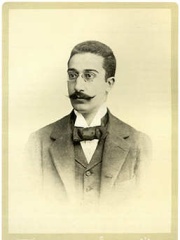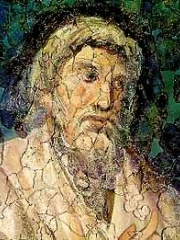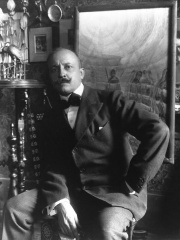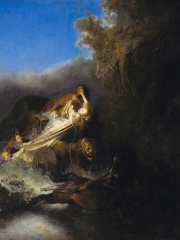WRITER
Naguib Mahfouz
1911 - 2006

 Naguib Mahfouz
Naguib Mahfouz
Naguib Mahfouz Abdelaziz Ibrahim Ahmed Al-Basha (Arabic: نجيب محفوظ عبد العزيز ابراهيم احمد الباشا, IPA: [næˈɡiːb mɑħˈfuːzˤ]; 11 December 1911 – 30 August 2006) was an Egyptian writer who won the 1988 Nobel Prize in Literature. In awarding the prize, the Swedish Academy described him as a writer "who, through works rich in nuance – now clear-sightedly realistic, now evocatively ambiguous – has formed an Arabian narrative art that applies to all mankind". Mahfouz is regarded as one of the first contemporary writers in Arabic literature, along with Taha Hussein, to explore themes of existentialism. He is the only Egyptian to win the Nobel Prize in Literature. Read more on Wikipedia
His biography is available in 139 different languages on Wikipedia (up from 135 in 2024). Naguib Mahfouz is the 125th most popular writer (up from 151st in 2024), the 25th most popular biography from Egypt (up from 34th in 2019) and the most popular Egyptian Writer.
Naguib Mahfouz is most famous for his novel, The Cairo Trilogy. This trilogy consists of Palace Walk, Palace of Desire, and Sugar Street.
Memorability Metrics
Page views of Naguib Mahfouz by language
Among WRITERS
Among writers, Naguib Mahfouz ranks 125 out of 7,302. Before him are Rainer Maria Rilke, Ismail I, Mario Vargas Llosa, Federico García Lorca, Muhammad Iqbal, and Ivo Andrić. After him are Jane Austen, Ammianus Marcellinus, Apuleius, Sully Prudhomme, Jean de La Fontaine, and Ezra Pound.
Most Popular Writers in Wikipedia
Go to all RankingsRainer Maria Rilke
1875 - 1926
HPI: 80.94
Rank: 119
Ismail I
1487 - 1524
HPI: 80.93
Rank: 120
Mario Vargas Llosa
1936 - 2025
HPI: 80.93
Rank: 121
Federico García Lorca
1898 - 1936
HPI: 80.92
Rank: 122
Muhammad Iqbal
1877 - 1938
HPI: 80.65
Rank: 123
Ivo Andrić
1892 - 1975
HPI: 80.64
Rank: 124
Naguib Mahfouz
1911 - 2006
HPI: 80.63
Rank: 125
Jane Austen
1775 - 1817
HPI: 80.62
Rank: 126
Ammianus Marcellinus
330 - 395
HPI: 80.61
Rank: 127
Apuleius
125 - 170
HPI: 80.60
Rank: 128
Sully Prudhomme
1839 - 1907
HPI: 80.51
Rank: 129
Jean de La Fontaine
1621 - 1695
HPI: 80.50
Rank: 130
Ezra Pound
1885 - 1972
HPI: 80.47
Rank: 131
Contemporaries
Among people born in 1911, Naguib Mahfouz ranks 5. Before him are Ronald Reagan, Josef Mengele, Baba Vanga, and Konstantin Chernenko. After him are Georges Pompidou, Emil Cioran, Juan Manuel Fangio, Władysław Szpilman, Luis Walter Alvarez, Todor Zhivkov, and Czesław Miłosz. Among people deceased in 2006, Naguib Mahfouz ranks 6. Before him are Saddam Hussein, Ferenc Puskás, Saparmurat Niyazov, Slobodan Milošević, and Augusto Pinochet. After him are Raymond Davis Jr., Gerald Ford, Stanisław Lem, Milton Friedman, Alfredo Stroessner, and Owen Chamberlain.
Others Born in 1911
Go to all RankingsRonald Reagan
POLITICIAN
1911 - 2004
HPI: 86.36
Rank: 1
Josef Mengele
PHYSICIAN
1911 - 1979
HPI: 84.33
Rank: 2
Baba Vanga
OCCULTIST
1911 - 1996
HPI: 81.29
Rank: 3
Konstantin Chernenko
POLITICIAN
1911 - 1985
HPI: 81.23
Rank: 4
Naguib Mahfouz
WRITER
1911 - 2006
HPI: 80.63
Rank: 5
Georges Pompidou
POLITICIAN
1911 - 1974
HPI: 79.83
Rank: 6
Emil Cioran
PHILOSOPHER
1911 - 1995
HPI: 78.22
Rank: 7
Juan Manuel Fangio
RACING DRIVER
1911 - 1995
HPI: 77.85
Rank: 8
Władysław Szpilman
MUSICIAN
1911 - 2000
HPI: 77.16
Rank: 9
Luis Walter Alvarez
PHYSICIST
1911 - 1988
HPI: 76.99
Rank: 10
Todor Zhivkov
POLITICIAN
1911 - 1998
HPI: 75.86
Rank: 11
Czesław Miłosz
WRITER
1911 - 2004
HPI: 75.74
Rank: 12
Others Deceased in 2006
Go to all RankingsSaddam Hussein
POLITICIAN
1937 - 2006
HPI: 85.93
Rank: 1
Ferenc Puskás
SOCCER PLAYER
1927 - 2006
HPI: 82.61
Rank: 2
Saparmurat Niyazov
POLITICIAN
1940 - 2006
HPI: 82.01
Rank: 3
Slobodan Milošević
POLITICIAN
1941 - 2006
HPI: 81.78
Rank: 4
Augusto Pinochet
POLITICIAN
1915 - 2006
HPI: 81.77
Rank: 5
Naguib Mahfouz
WRITER
1911 - 2006
HPI: 80.63
Rank: 6
Raymond Davis Jr.
CHEMIST
1914 - 2006
HPI: 80.12
Rank: 7
Gerald Ford
POLITICIAN
1913 - 2006
HPI: 79.91
Rank: 8
Stanisław Lem
WRITER
1921 - 2006
HPI: 77.56
Rank: 9
Milton Friedman
ECONOMIST
1912 - 2006
HPI: 77.39
Rank: 10
Alfredo Stroessner
POLITICIAN
1912 - 2006
HPI: 75.34
Rank: 11
Owen Chamberlain
PHYSICIST
1920 - 2006
HPI: 74.94
Rank: 12
In Egypt
Among people born in Egypt, Naguib Mahfouz ranks 25 out of 642. Before him are Plotinus (203), Moses in Islam (-1392), Catherine of Alexandria (287), Rudolf Hess (1894), Anwar Sadat (1918), and Imhotep (-2800). After him are Hagar (-1800), Hero of Alexandria (10), Athanasius of Alexandria (295), Diophantus (201), Nefertari (-1290), and Dalida (1933).
Others born in Egypt
Go to all RankingsPlotinus
PHILOSOPHER
203 - 270
HPI: 82.09
Rank: 19
Moses in Islam
RELIGIOUS FIGURE
1392 BC - 1272 BC
HPI: 82.06
Rank: 20
Catherine of Alexandria
RELIGIOUS FIGURE
287 - 305
HPI: 81.57
Rank: 21
Rudolf Hess
POLITICIAN
1894 - 1987
HPI: 81.45
Rank: 22
Anwar Sadat
POLITICIAN
1918 - 1981
HPI: 81.32
Rank: 23
Imhotep
ARCHITECT
2800 BC - 2700 BC
HPI: 81.17
Rank: 24
Naguib Mahfouz
WRITER
1911 - 2006
HPI: 80.63
Rank: 25
Hagar
RELIGIOUS FIGURE
1800 BC - 2000 BC
HPI: 80.49
Rank: 26
Hero of Alexandria
MATHEMATICIAN
10 - 75
HPI: 80.07
Rank: 27
Athanasius of Alexandria
PHILOSOPHER
295 - 373
HPI: 79.92
Rank: 28
Diophantus
MATHEMATICIAN
201 - 300
HPI: 79.85
Rank: 29
Nefertari
COMPANION
1290 BC - 1255 BC
HPI: 79.56
Rank: 30
Dalida
SINGER
1933 - 1987
HPI: 79.51
Rank: 31
Among WRITERS In Egypt
Among writers born in Egypt, Naguib Mahfouz ranks 1. After him are Apollonius of Rhodes (-295), Appian (95), Sayyid Qutb (1906), Constantine P. Cavafy (1863), Athenaeus (200), Lactantius (250), Filippo Tommaso Marinetti (1876), Claudian (370), Nonnus (500), Dionysius Thrax (-170), and Pope Dionysius of Alexandria (190).
Naguib Mahfouz
1911 - 2006
HPI: 80.63
Rank: 1
Apollonius of Rhodes
295 BC - 215 BC
HPI: 75.13
Rank: 2
Appian
95 - 165
HPI: 74.36
Rank: 3
Sayyid Qutb
1906 - 1966
HPI: 74.34
Rank: 4
Constantine P. Cavafy
1863 - 1933
HPI: 74.33
Rank: 5
Athenaeus
200 - 223
HPI: 73.38
Rank: 6
Lactantius
250 - 325
HPI: 73.15
Rank: 7
Filippo Tommaso Marinetti
1876 - 1944
HPI: 72.96
Rank: 8
Claudian
370 - 404
HPI: 70.15
Rank: 9
Nonnus
500 - 500
HPI: 69.60
Rank: 10
Dionysius Thrax
170 BC - 89 BC
HPI: 69.60
Rank: 11
Pope Dionysius of Alexandria
190 - 264
HPI: 69.10
Rank: 12

